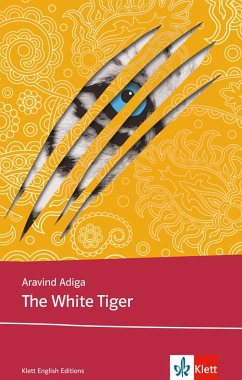
He suffers many indignities in this position and the final blow comes when he is asked to assume responsibility for a road accident he did not commit. The first step in Munna’s journey up the social ladder comes when he acquires a job as a chauffeur to his village landlord’s son Ashok who resides with his wife Pinky in Delhi.


All I want is that one son of mine-at least one-should live like a man.” His mom died when he was young and his tired, gnarled rickshaw puller dad said prophetically, “My whole life, I have been treated like a donkey. He says he is “ in the light now” but he “was born and raised in darkness.” If you have not guessed it yet, light symbolizes the rich and darkness relates to poverty. The story opens with our main character as a successful businessman in Bangalore. In this epistolary novel, Munna writes down his life story in the form of a long letter addressed to “his excellency”, the Chinese Premier Wen Jiabao who is poised to visit India to learn the secrets of its rising entrepreneurship. I heeded her advice and read this darkly humorous thriller which did not disappoint.īalram Halwai aka Munna is our pithy protagonist, a poor boy who hails from the village of Laxmangarh in the district of Gaya. I watched the compelling movie, and I was discussing it earnestly with my high school-friend Deepanita Singh, an avid reader who told me that I should read the riveting novel as the screen adaptation was merely an “ insipid and watered-down version of what could have been!”Īccording to her, the “ book is powerful and packs a punch” as “it is a brilliant and brutal satire on the neo liberal India of 2008”.

There has been a resurgence of interest in Aravind Adiga’s book The White Tiger as Netflix recently released a movie of the same name based on this 2008 Booker prize-winning exemplary work of fiction.


 0 kommentar(er)
0 kommentar(er)
